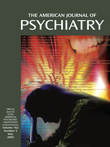These books are volumes two and three of the Key Readings in Addiction Psychiatry series published by the American Academy of Addiction Psychiatry. Each consists of previously published articles that the editors have selected from journals including the American Journal of Addiction, American Journal of Psychiatry, and Archives of General Psychiatry.
Dual Diagnosis begins with a study by Kendler and colleagues of the sources of individual differences in risk for use and abuse of different illicit psychoactive substances in a large group of male twins in order to measure the genetic influence on that risk. Another team evaluated treatment-seeking substance abusers to delineate subgroups of psychiatric comorbidity in terms of DSM-III-R diagnostic criteria in order to facilitate treatment planning. Other researchers addressed the question of whether psychiatric disorders cause or lead to substance abuse or vice versa, with special emphasis on phobias and personality disorders. There is a chapter on the validity and reliability of two instruments used in screening for drug and alcohol abuse. Another explores the rationale for integrated services for dually diagnosed patients. There is a report on the value of one-session motivational interviewing as a prelude to treatment.
One chapter discusses treating depressed alcohol-dependent individuals, and another tries to measure the utility of psychosocial interventions such as psychotherapy and Alcoholics Anonymous (AA) in treating substance-dependent patients with bipolar disorder. Researchers from the Netherlands screened 116 drug-abusing patients for anxiety and mood disorders and compared three means of doing so: a symptom checklist before detoxification, a symptom checklist after detoxification, and a structured interview. A group of Yale psychiatrists review the literature on the association of posttraumatic stress disorder with substance abuse. They cover phenomenology, epidemiology, and neurophysiology. They report promising developments in the pharmacological treatment of this population. One article reports a study of correlates of substance abuse in patients with schizophrenia, including intensity of symptoms, demographics, medication side effects, and social functioning. The final chapter reports on a prospective study of the value of personality assessment in predicting vulnerability to substance abuse, with a review of the pertinent literature.
The collection of articles in Psychosocial Treatments focuses on interventions that are supported by research data as well as on their conceptual bases. The first chapter is devoted to the Marlatt-Gordon cognitive behavior model for relapse prevention in alcoholics. It was interesting to read about identifying the different factors that predispose to relapse and the strategies to deal with them, but I was surprised that the authors never mentioned the AA 12-step fellowship, which has been doing that since the 1930s. The following chapter explains and discusses motivational interviewing, and the next reports a study of its effectiveness in getting substance abusers into treatment.
Chapter 4 is about network therapy with cocaine abusers, i.e., doing cognitive behavior therapy with peers and relatives concomitantly with the identified patient. Following that is an article on the community-reinforcement approach to treating alcoholism. Its essence is the use of many and varied resources in the patient’s social environment to eliminate positive reinforcement for drinking and maximize positive reinforcement for sobriety. Chapter 6 is a review of the literature on the use of vouchers, i.e., money, to augment other strategies for treating chemical dependencies from nicotine to opiates. The authors acknowledge the difficulty of expanding such an approach from research clinics, where the money comes from grants, to community programs. The following chapter reports a study comparing contingency management with cognitive behavior therapy and a combination of the two strategies in a large group of cocaine-dependent individuals who were in a methadone maintenance treatment program for their opiate addiction.
One chapter reports a survey of self-help strategies among 642 patients with substance abuse disorders, 78% of whom used some form of self-help, such as making efforts to reduce their drug use, changing friends, moving their residence, or joining a self-help group. Another compared two types of residential treatment programs for dually diagnosed veterans—freestanding substance abuse facilities and ones in which psychiatric and substance abuse treatment are integrated. There is a chapter on psychotherapy for substance-abusing adolescents comparing cognitive behavior treatment with interactional treatment. The last chapter explores links between alcohol and crime and offers suggestions for community intervention.
I believe that these 23 articles are well worth reading if, as the editors say, they are carefully chosen samples of the addiction literature. As a general psychiatrist, I may not have seen any of them in the usual course of my reading.

